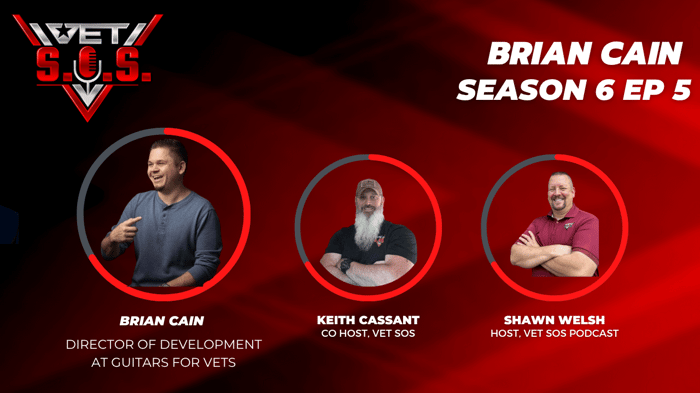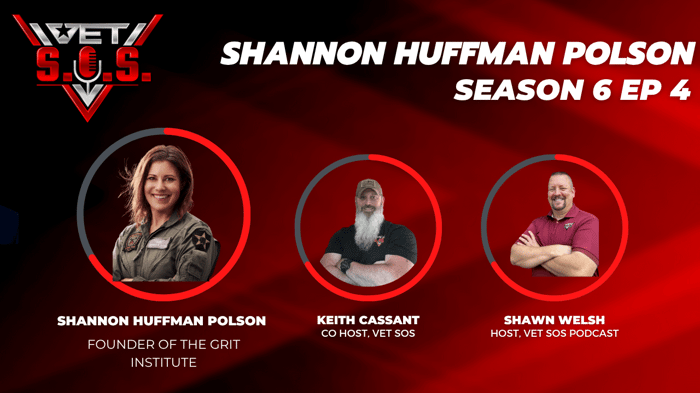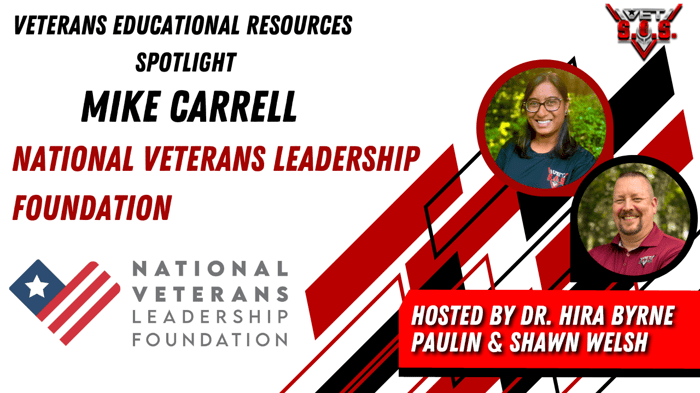Mastering the Veteran Career Transition: Bill Kieffer’s Proven Guide
Transitioning from military service to the civilian workforce is one of the most critical and often misunderstood phases in a veteran’s life. The journey is complex, emotional, and filled with uncertainty. In the first episode of The Scoop, a new series from the VET S.O.S. Podcast Network, host Kingsley Scott dives deep into the reality of the veteran career transition with special guest Bill Kieffer.
Bill isn’t just another coach—he’s a seasoned U.S. Army officer turned HR executive, author of two powerful transition guides, and co-founder of Veteran Career Journey, a nonprofit focused on helping veterans succeed after service. His story, strategies, and insights are reshaping how we approach the veteran career transition in today’s workforce.
From Uniform to Uncertainty: Bill’s Transition Story
 Bill Kieffer
Bill KiefferBill Kieffer served almost 12 years in the Army with plans of a long military career. But life had other plans. A sudden divorce and the need to raise three small children forced Bill to resign his commission, even while on the promotion list for Major. Like many others in a similar situation, his veteran career transition began not with preparation, but with confusion and fear.
He candidly admits he was “a mess” during his transition. With no clear roadmap and little support, he stumbled through the process, learning the hard way what it takes to land on your feet after military service. His experience laid the foundation for his mission today: helping other veterans avoid the same mistakes he made during his veteran career transition.
Why Civilian Employers Don’t Understand the Military
One of the most important insights Bill shares is the stark reality that most civilian employers know very little about the military—and many simply don’t care. This isn’t malicious; it’s a result of the cultural divide. Veterans are trained and conditioned in a structured environment built around service, mission, and hierarchy. Civilian workplaces operate in a world centered around profit, speed, and ambiguity.
This disconnect is what Bill calls the “culture gap,” and it’s one of the most significant challenges during a veteran career transition. Veterans often assume that their military experience speaks for itself, but in reality, employers are looking for one thing: how can you solve my business problem?
Translate Your Value, Don’t Just Tell Your Story
A major pitfall in the veteran career transition is language. Military lingo—what Bill calls “Veteranese” or “MilSpeak”—doesn’t translate in a civilian interview. Describing yourself as a “90 Alpha 5 Papa 3 Romeo” might mean something to fellow service members, but to a hiring manager, it’s just noise.
Bill’s solution is straightforward but powerful: translate your skills into civilian terms that align with the job you’re pursuing. That means understanding what the employer needs and tailoring your experience to fit those needs. During the episode, he shares a simple but effective method: take the job description and break it down point by point. Then, next to each requirement, write out how your experience aligns with it.
This exercise forces veterans to view their military experience through the lens of value creation—exactly what employers are looking for during the hiring process.
The Reality of At-Will Employment
Another crucial point Bill raises is understanding the concept of “at-will” employment, a stark contrast from military contracts. In the military, your role is secure for a set period. In the civilian world, you can be let go at any time—with or without cause. That’s a jarring realization for many going through the veteran career transition.
Bill encourages veterans to accept this reality and use it to fuel their preparation. Instead of relying on perceived job security, he suggests building a strong network, continuously learning, and always being ready for change. “Start now. You can’t cram for the transition exam,” he warns.
Why “Me Not We” Matters in Interviews
Teamwork is the backbone of military success. However, in civilian job interviews, emphasizing “we” too much can backfire. Employers aren’t hiring your old unit—they’re hiring you. Bill stresses the importance of articulating your individual contributions within a team environment.
The ideal formula? Describe the team’s mission briefly, then explain your specific role and the results you helped achieve. This approach demonstrates both collaboration and accountability—two traits highly valued in the civilian workforce and essential during a veteran career transition.
Culture Shock: From Camouflage to Business Casual
Bill sheds light on subtle yet powerful cultural shifts veterans face. Something as simple as uniform standards can create confusion. In the military, a uniform tells you everything—rank, experience, specialization. In the civilian world, everyone might look the same on the surface, leaving veterans unsure of roles and hierarchy.
These seemingly minor shifts are part of a larger cultural realignment that every veteran career transition requires. Bill emphasizes that the key to bridging this gap is immersion—read civilian business books, attend networking events, practice interviews, and expose yourself to the professional language and norms of your target industry.
Solving the Culture Gap: A Two-Way Street
The culture gap isn’t just a veteran problem. Bill believes both employers and veterans need to work together to close the divide. Veterans must adapt, learn, and communicate differently, while companies should be more open to understanding the value that veterans bring.
Through his nonprofit, Veteran Career Journey, Bill offers free monthly virtual classes based on his two books—Military Career Transition: Insights from the Employer Side of the Desk and The Deployment Side of the Desk. These resources help prepare veterans for the challenges ahead and give them tools to succeed in any industry.
Keys to a Successful Veteran Career Transition
Here are Bill Kieffer’s top recommendations for a strong veteran career transition:
Start Early – Don’t wait until you’re six months out. The sooner you begin, the smoother your transition will be.
Define Success – Know what success looks like for you personally, not just professionally.
Learn the Language – Ditch the acronyms. Speak the language of business and leadership.
Own Your Value – Know your unique skills and how they apply to your desired industry.
Practice Interviews – Get your reps in. Interview for jobs you don’t want to sharpen your communication.
Network Strategically – Build relationships with people in your target industry before you need a job.
Stay Agile – Civilian work can change quickly. Always be ready to pivot.
Where to Learn More
You can find Bill’s books—Military Career Transition and The Deployment Side of the Desk—on Amazon. Visit www.veterancareerjourney.org to register for free classes, read transition tips, and get personalized support.
Bill can also be reached directly at [email protected] for veterans seeking mentorship or program info.
Final Thoughts
The veteran career transition is a high-stakes, deeply personal process. It’s not just about finding a job—it’s about finding purpose and belonging in a brand-new world. Bill Kieffer’s guidance is a roadmap built on both experience and empathy. For any service member preparing to hang up the uniform, there’s no better time to start preparing than right now.




